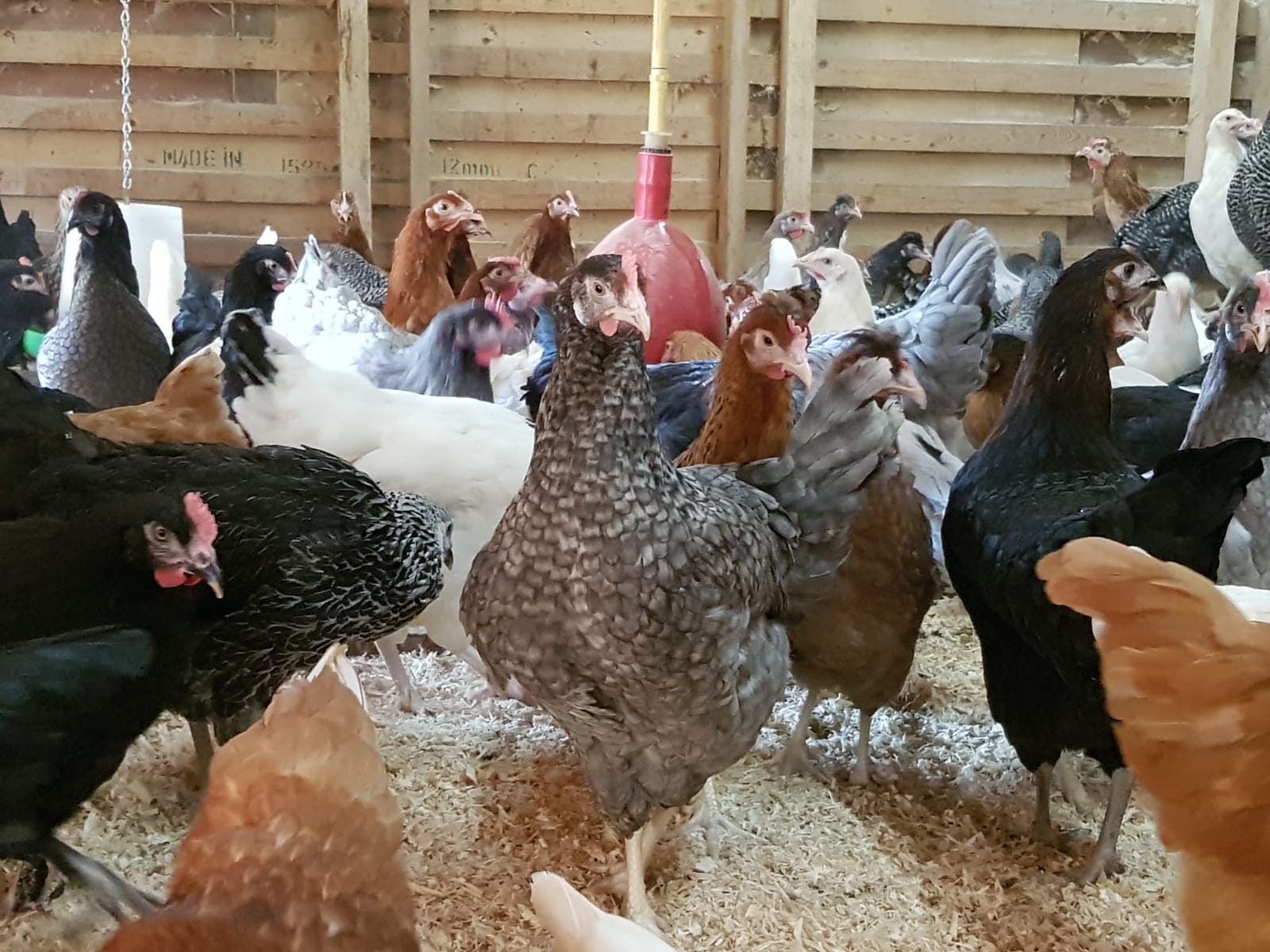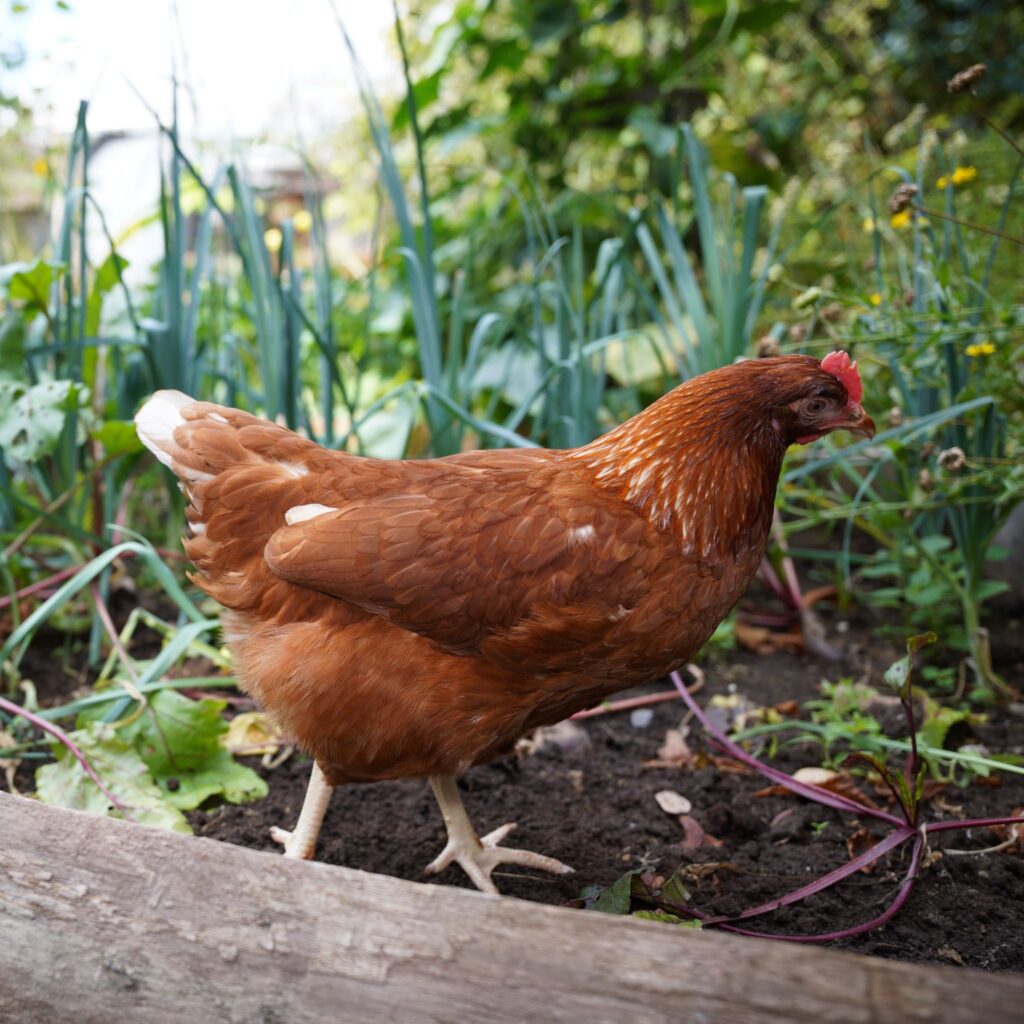
The Egg Shortage Vs. Bird Flu – UK 2022
So, where to start – how confusing it all seems to get to the bottom of what exactly is causing the ‘egg shortage’ in the UK at present. All sorts of thoughts and opinions are being thrown around leaving many of the public struggling to understand why it is that the supermarket shelves are running dry of eggs, with, in many places, rationing being imposed on the small stocks that are available. From our knowledge of running Mantel Farm, our own (relatively small) egg production issues and spending some time researching the subject / talking to others, here is our attempt to sum it all up…
So do we blame bird flu?
It would appear, the main flag being waved currently, is that of the UK’s (undoubted) biggest outbreak of Avian Influenza, ‘Bird Flu’ – as most of us know it. Indeed, here we are all again with our flocks of chickens shut-in – locked down, ready in many cases to endure another winter of tough times not being allowed to free range in our gardens, paddocks, and fields. From back garden keepers to smallholders to small, medium and the biggest free-range egg producers, this causes no end of problems, from the loss of quality of life for the birds to far reduced quality of the eggs they produce, not to mention the (mostly unrealised) difficulties of shutting in birds that are used to be out and about. As small flock keepers will well know, keeping just a few chickens amused in a more confined area can be challenging, to prevent boredom, pecking, loss of condition, and the production of an environment far more likely to pests and infections, needs good animal husbandry……, now consider this for the large egg producers, say 10 – 50,000 birds!
Without a doubt, the bird flu situation is adding strain to other problems facing the UK’s egg producers. Sadly, under current law, the detection of just a single case of bird flu in a flock, whatever its size, would mean the culling of that entire flock, often tens of thousands of birds. As you may guess, there are arguments for and against this, though not for consideration here. Once this has happened to a producer, many businesses are destroyed as the financials for a comeback just don’t add up. Even if they can rise again, there is a long climb back up a very steep hill.
But what about the commercial ‘indoor’ birds?
As bad as all that sounds, not all egg producers are facing these problems. There are millions of chickens kept inside for egg production, often referred to as ‘barn’ eggs. Very rarely are these kept in the (imagined) quaint little wood-framed barn on a farm somewhere in the depths of the UK’s countryside – they are mostly the giant steel-framed, metal sheet-clad poultry sheds of the commercial egg farms. That said, without these indoor chicken farms we wouldn’t have enough eggs to feed our nation and would very quickly see far more eggs coming from abroad where, in many cases, welfare standards for the birds are far lower than ours. Although these chickens are born indoors, kept indoors, and are far more used to the more confined conditions, it is very much down to these farmers and their staff to ensure good biosecurity to keep bird flu on the outside.
It very much puzzles us when we all too frequently hear of bird flu cases within the walls of the big barns – commercial flocks with the subsequent culling of thousands of birds – this really shouldn’t be possible. The whole point of keeping birds in is to prevent bird flu outbreaks. We have to ask how this is happening, biosecurity on these huge buildings housing these large numbers of birds should be tighter than tight, we need to keep these birds safe.
Our costs are forever rising…
However, these farms and the free-range producers face many (often unpublicised) supply chain problems. Due to whatever current world affairs you care to blame, we are all facing soaring costs and supply issues on many things. For the egg producers this has seen the costs of producing eggs reaching a state of financial unviability. The costs of animal feed has increased dramatically as many of you will be well aware. This starts the problem at the rearers – the people producing the birds that are supplied to the egg producers (they are usually completely separate businesses). Therefore the egg producers are faced with paying more for the birds they need to lay the eggs. Next, the increased costs of this adds another blow to the egg producer, they have to feed the birds that lay the eggs! Not to mention similar increased costs of the bedding materials and those who look after the birds, the staff, who would like a pay rise to keep up with the cost of living. On top of all this is the latest hammer blow, the increased costs of energy – lighting and often heating these huge barns, this hits the rearers and the producers. This undoubtedly will be hitting the free rangers the hardest as their birds wouldn’t normally be shut in!
How much of the blame lies with the supermarkets?
As if all of this isn’t enough, our research seems to be saying that the price the supermarkets are paying the producers for the eggs just isn’t enough, it has increased very little during these times, in fact it seems, nil in many cases. This is despite the fact that the eggs on the shelves have increased dramatically to the general public. There are videos online where farmers are voicing their concerns and situations, desperately looking for answers and more than anything asking for support from the government and the public.
Although the UK does in theory have enough space/capacity to be self-sufficient in eggs, we aren’t, and we do import the shortfall from abroad. It would be all too easy for larger quantities to be imported to make up an even bigger shortfall should our egg farmers not get the required price for their product and the support they need to ride out the array of problems being faced.
……could it be convenient to lay the blame on bird flu to pave the way for importing much cheaper eggs from abroad, allowing supermarkets to ‘have their cake and eat it’?
Please help where you can, it would be a sad day to witness the complete collapse of the UK’s egg farms and succumb once again to cheaper replacements from across the sea.
So what can we all do?
- Shop local wherever possible
- Support local producers directly, (many producers are now selling directly from their door)
- Only buy UK-produced eggs (check the label for country of origin)
- Check labelling for certification of higher welfare producers
- Standard free range & Organic free range have lower stocking densities and higher welfare standards (even during times of lock-in these standards will have to be maintained)
- Don’t forget during times of lock-in, Organic birds may not be free ranging, but they will still be fed on organic feed.
- If you have space and time – keep your own chickens, we’ve promoted this for years, it’s the heart of our home and business








